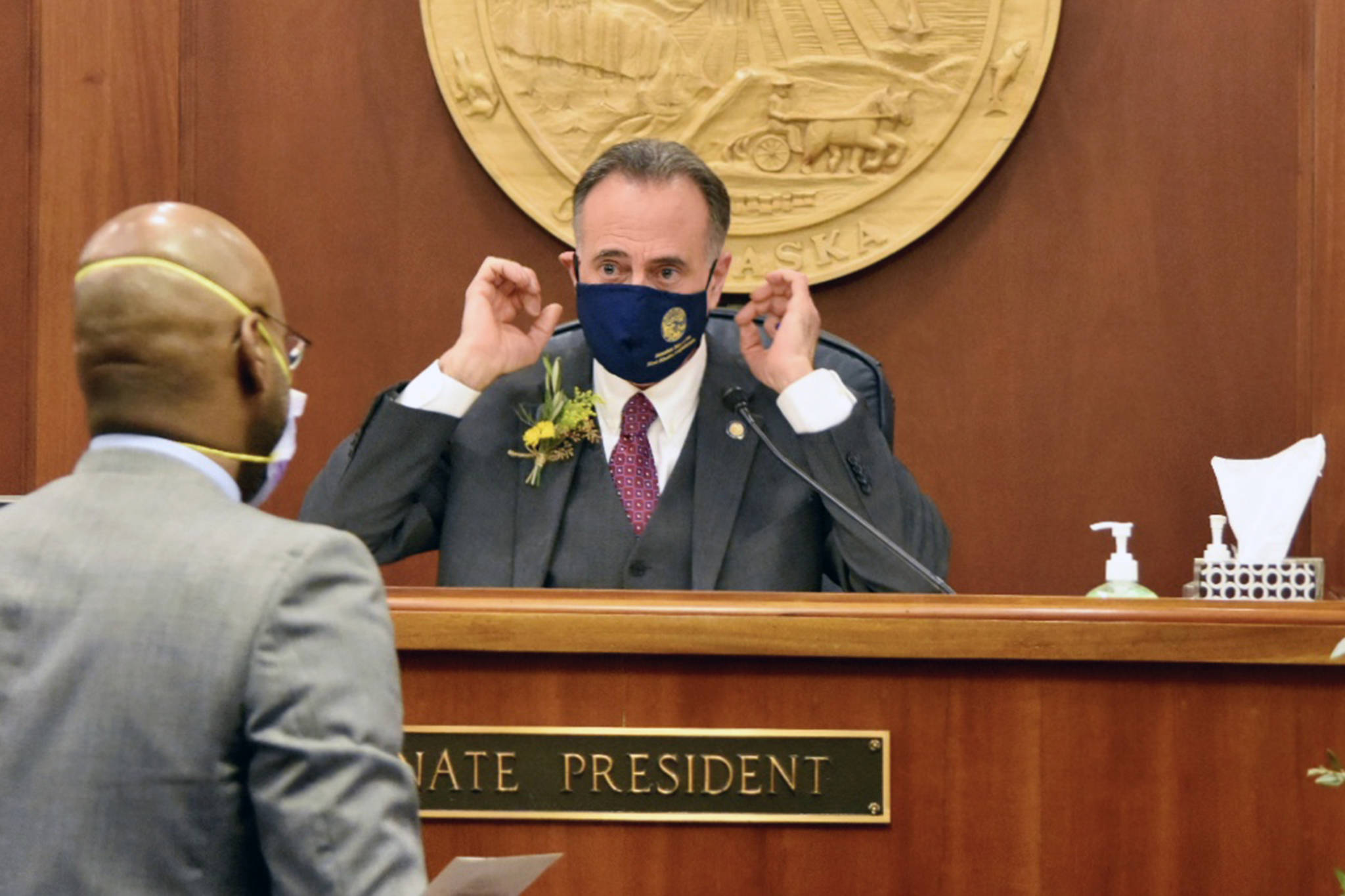With just over two months left in the first regular session of Alaska’s 32nd legislative session, local lawmakers are at work on different priorities.
Freshman lawmaker Ron Gillham, R-Kenai, has introduced two bills this session.
One of Gillham’s bills — H.B. 136 — would name a bridge that will be built over Juneau Creek in Cooper Landing the “Congressman Don Young Bridge.”
The bridge is one element of Cooper Landing Bypass, $375 million project that will also see the reconstruction of the east and west ends of existing Sterling Highway roadway at MPs 45 to 46.5 and 56 to 58. The project is estimated to be completed by 2025.
According to the Alaska Department of Transportation, the project would carry traffic farther away from the Kenai River and would cross the Resurrection Pass National Recreation Trail.
Once built, the bridge would become the longest single-span bridge in Alaska. As of Friday, the bill had been referred to the House Transportation Committee.
Gillham’s other bill, H.B. 107, would make hunting and sport fishing licenses free for Alaska residents who are actively serving in or retired from the U.S. military or the U.S. Coast Guard. The bill would change existing state statute from allowing free licenses to disabled veterans and active members of the Alaska National Guard military reserves to include “certain” veterans and active military and U.S. Coast Guard members. All would need to be Alaska residents as defined by state statute.
As of Friday, the bill had been referred to the House Fisheries Committee.
Rep. Ben Carpenter, R-Nikiski, has introduced two bills this session.
One of Carpenter’s bills, H.B. 124, would change how the governor is able to fill vacancies in the Alaska Legislature. The bill would change existing statute such that when a vacancy occurs in the Legislature, the governor shall appoint a “qualified” person to fill the vacancy.
Under H.B. 124, the governor could not fill the vacancy if the term of the person who previously held the vacant seat would expire within 30 days after the vacancy occurs. Existing state statute does not specify a 30-day expiration date. As of Friday, the bill, which Rep. Sarah Vance, R-Homer, co-sponsored, had been referred to the House State Affairs Committee.
Carpenter’s other bill, H.B. 131, would require recall petitions to be filed within one year after the date that the petition was certified by a director. Existing statute says petitions cannot be filed within less than 180 days of the termination of the term of the official subject to recall. As of Friday, that bill had been referred to the House Community and Regional Affairs Committee.
Of the central peninsula’s three legislative representatives, only bills sponsored by Sen. Peter Micciche, R-Soldotna, have been heard in committee.
S.B. 9, which would change state regulations related to alcohol, has been a yearslong effort for Micciche, who said during a hearing Friday that it aims to modernize the state’s alcohol regulations. The bill was heard before the Senate Labor and Commerce Committee on Feb. 12 and March 12, and was voted out of committee on March 12.
During Friday’s hearing, several groups testified in support of the bill, which they said would benefit all stakeholders and give Alaska’s alcohol industry long-term regulatory certainty.
Brewer’s Guild of Alaska Board President Lee Ellis, who is also the president of Midnight Sun Brewing Company, was one of many who testified in support of the bill Friday.
“We’ve worked really hard over the last nine years to [reach] a consensus on what the modernization of alcohol laws should look like,” Ellis said. “I believe what you have before you is absolutely the best work [of] 120 different stakeholders … to get that kind of consensus.”
Other groups who were represented by people who testified in support of the bill included the Mat-Su Health Foundation, Devil’s Club Brewing Company, the Alaska Cabaret, Hotel and Restaurant and Retailers Association, among others.
Micciche’s other bill, S.B. 29 would establish a buy-back program for certain set-net entry permits in Cook Inlet, among other things.
“This is a bill brought to me by fishermen from two of the user groups in Cook Inlet — the sport and commercial community who have struggled to work together for many years and now feel like they have a solution moving forward,” Micciche said during a meeting of the Senate Resources Committee.
More information about legislative bills can be found at akleg.gov.
Reach reporter Ashlyn O’Hara at ashlyn.ohara@peninsulaclarion.com.

